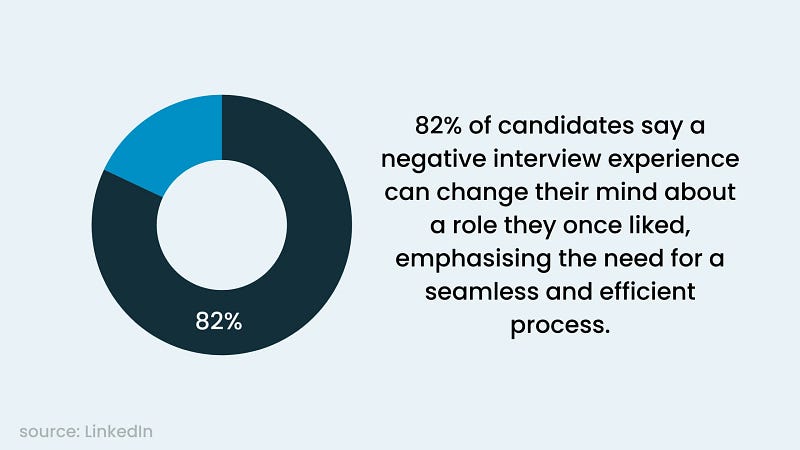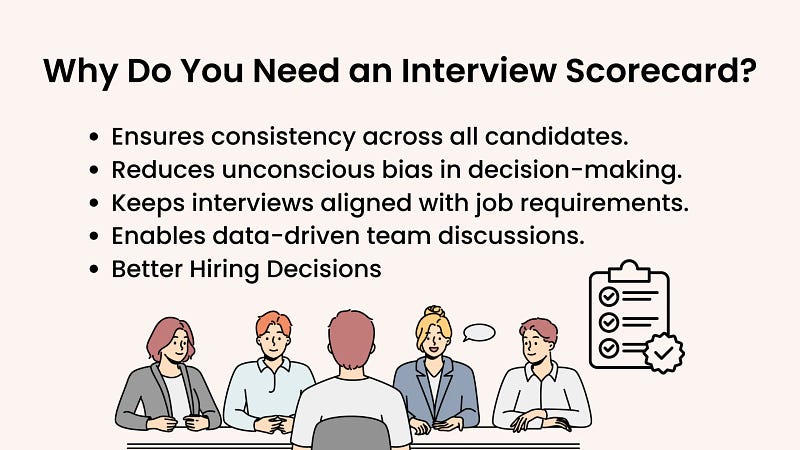
What is an Interview Process?
The interview process is a series of organised steps that employers use to find and choose the best people for a job. It includes different parts, starting with looking at job applications and ending with picking the final candidate. The goal is to check if the candidate has the right skills and qualifications and if they fit well with the company’s culture.
The interview process is very important for hiring and affects how well you find the right people. Each part affects both the employer and the candidate, from setting up interviews to giving results.
This guide looks at essential parts of a successful interview process, with advice from experts and helpful resources.
Essential Components Of Interview Process
1. Cracking the Secrets of Conducting Job Interviews
Holding job interviews is very important for making good hiring choices. These interviews help pick the right people for your company, which affects its future and also shows what your company stands for. However, doing a good interview is more than just asking the right questions; it needs careful planning and focus. Recruiters must handle applications, make candidates feel good, and get the best people to apply.
Check out the Top Secret of Conducting Awesome Job Interviews for useful tips.
2. Tips for Interviewers
Good interviewing requires interviewers to know what the job requires, ask the right questions, and keep the conversation going smoothly. Questions like “Can you tell me about a difficult project you managed?” help candidates share essential details about their skills and past work. Mixing planned questions with some flexibility lets the interview fit each candidate’s unique skills.
Making candidates feel comfortable helps them be honest and sets a good mood. To avoid unfair judgments, focus on job-related things and use scorecards or checklists to judge everyone the same way. Talking with other interviewers after the meeting helps make a fair hiring choice.
Statistics: Companies that use planned interviews see a 57﹪ better chance of picking the right person.
Source: Harvard Business Review
For more tips, here are 11 Best Insider Interview Tips for Interviewers.
3. Types of Interviews
The kind of interview you choose greatly affects how well your hiring process goes. Interviews are a very important part of hiring someone. Here are some common types:
- One-on-One Interview: A usual face-to-face meeting with just one interviewer.
- Group Interview: Multiple candidates are interviewed at the same time to see how they work together and solve problems.
- Phone Interview: A first-round interview is done over the phone to screen candidates.
- Structured Interview: A set interview where all candidates are asked the same questions in the same order. This helps make sure everyone is judged fairly and equally.
- Video Interview: A remote interview done using video calls.
- Behavioural Interview: Questions focus on what someone has done before to see their skills and how they act.
- Technical Interview: Tests technical skills by giving coding tasks or asking technical questions.
- Case Interview: Candidates are given business problems to analyse and solve.
For more information, see the Types of Interviews in details.
4. Understanding the Candidate’s Interview Perspective
The candidate interview is not just a part of the recruitment process; it’s a chance to show what your organisation is like and to see if the candidate fits in with your culture. Candidates look at companies just as much as companies look at them. A clear and organised process that shows your organisation’s values and culture makes the candidate feel better. Customising the interview to match a candidate’s background and goals shows respect and helps keep them interested.
Before the interview, good communication, like sending a detailed schedule and what to expect, can reduce the candidate’s stress. Giving feedback after the interview, no matter the result helps build a strong reputation as an employer.
Did you know? A LinkedIn survey found that 94﹪ of candidates appreciate getting helpful feedback after an interview, even if they don’t get the job.
Statistics: 73﹪, express a desire for more detailed information regarding the interview process when applying for a position.
Source: Glassdoor
Take a tour here for actionable tips: Key Points of Candidate Interview to Bring the Best Talent.
5. Interview Scheduling Process
A simplified scheduling process saves time and makes a good first impression. Using tools like automatic scheduling software cuts down on repeated messages and mistakes. Offering various time slots for candidates shows understanding and flexibility. Clear, regular communication about times, locations, and interview types ensures openness.
Employers can improve this process by adding reminders and syncing calendars, which helps avoid last-minute changes. LinkedIn says that companies using automatic scheduling systems see a 25﹪ boost in hiring efficiency.
Statistics: 70﹪ of professionals like having flexible scheduling options.
Source: Glassdoor
For detailed insights: Interview Scheduling Process that Improves Candidates’ Experience.
6. Structured Assessments with Interview Scorecards
Interview scorecards help recruiters judge candidates using set standards, making the process more fair and consistent. They reduce bias, make better decisions, and match evaluations with job requirements. Scorecards also make it simpler to compare candidates, especially in group or multiple-round interviews.
Companies that use scorecards find it faster for hiring teams to agree and are more satisfied with new hires. Adding clear measures and space for detailed feedback on scorecards ensures a thorough evaluation.
Statistics: Data shows that businesses using scorecards have a 36﹪ better chance of making the right hiring choice
Source: Harvard Business Review
Learn more: Interview Scorecards: A Guide for Interviewers.
7. Providing Constructive Interview Feedback to the Candidate
Feedback is an important part of the interview process that many people forget about. Giving timely and helpful feedback, even to candidates who didn’t get the job, helps build trust and a good relationship. By pointing out specific strengths and areas where they can improve, candidates can grow, and the company looks like a caring employer.
Using tools like automated feedback presentation templates helps keep communication consistent. Personalising the feedback shows that the interviewer pays attention and cares.
Statistics: Candidates who get feedback are 80﹪ more likely to apply again for future jobs, even if they were turned down the first time.
Source: Glassdoor
For practical approaches: How to Give Interview Feedback.
8. Common Interview Questions and How to Answer Them
Getting ready for interviews means thinking about the kinds of questions you might be asked. This part gives you ideas about 11 common interview questions, from ones that ask about your past experiences, like “Tell me about a time you had a problem at work,” to ones that ask how you would deal with a situation, like “How would you manage a tough client?” The goal is to understand why these questions are asked and to prepare clear, strong answers.
Important tips include making sure your answers match what the job needs, using a method called STAR (Situation, Task, Action, Result) for questions about past experiences, and showing how you solve problems for questions about situations. This helps you show your best qualities while also meeting the job’s needs.
For a deeper look at the most common interview questions and advice on how to give great answers, visit the Top 11 Common Interview Questions and How to Answer Them.
For tough interview questions, visit 5 Tough Interview Questions that are Difficult to Answer.
Conclusion
Getting good at the interview process is crucial for finding, choosing, and keeping the best people in today’s busy job market. By using new tools like video interviews, organised tests, and clear-talking, you can make the process smoother for both job seekers and the people doing the hiring. Every part, from setting up meetings easily to giving helpful feedback, is important for making the whole experience better for candidates and getting better results in hiring.
Using this complete guide, you can improve your hiring and show that your company cares about its people. Use these ideas to make your interview process a solid way to find and keep great talent.
Originally published at https://www.ismartrecruit.com.




